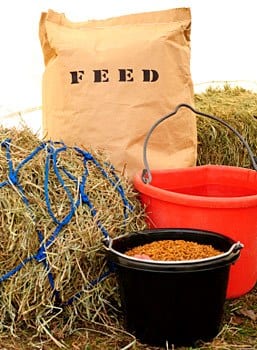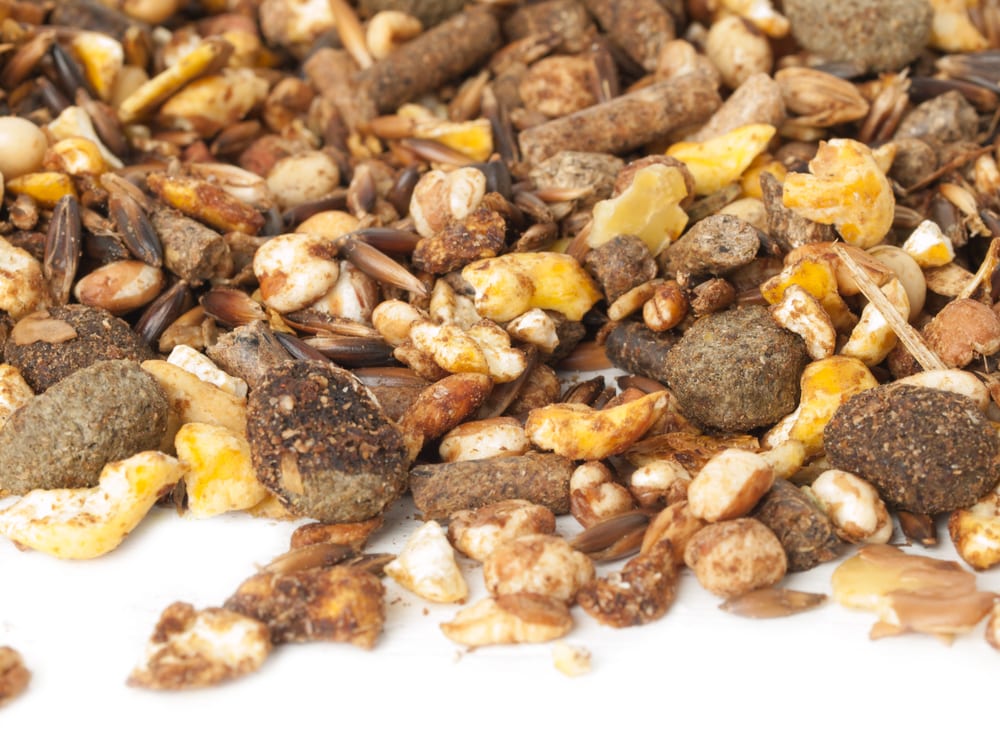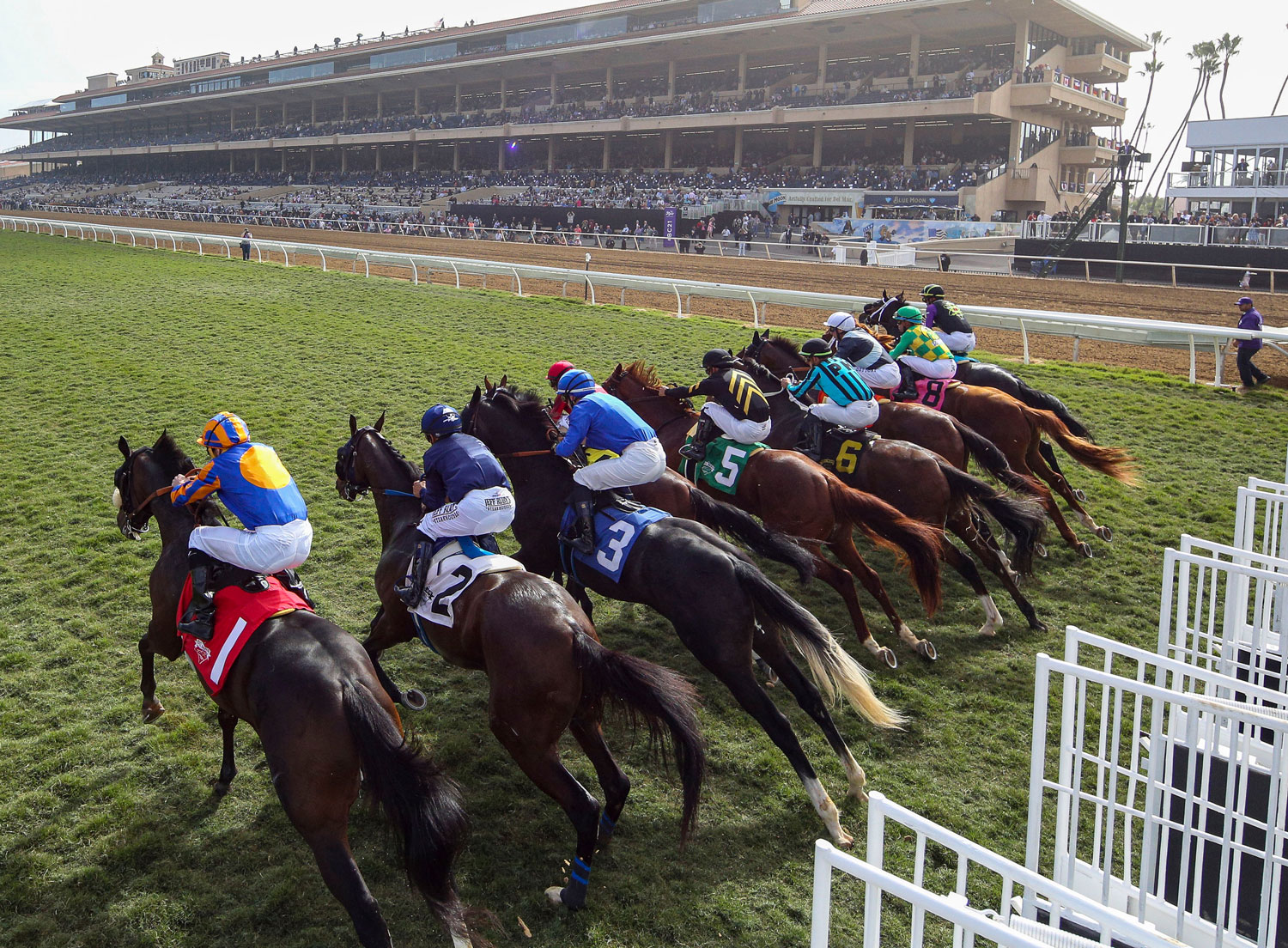In Monday Myths we debunk common misconceptions about a range of topics regarding equine digestive health and care. These are real statements made by real horse people. Have a question or topic you would like to see covered? Submit your idea here.
 Walk into almost any barn and you will likely find a dedicated room stocked with bags and barrels of a variety of grain-based feeds. Twice a day, and sometimes more, the horses receive their daily ration of sweet feed, pelleted feed, or some kind of processed feed. A scoop of grain and two flakes of hay – or a day out on pasture – makes up the typical meal for most horses.
However, it’s a fallacy that horses need to have grain in their diets. These grazing animals are designed to extract all the nutrition and energy they require from forage, or a variety of stemmy, fibrous grasses and plants. Grain is just an extra.
Here’s a look at why feeding grain has become the norm, as well as some reasons you might want to rethink what and how you incorporate grain in your horse’s diet.
Walk into almost any barn and you will likely find a dedicated room stocked with bags and barrels of a variety of grain-based feeds. Twice a day, and sometimes more, the horses receive their daily ration of sweet feed, pelleted feed, or some kind of processed feed. A scoop of grain and two flakes of hay – or a day out on pasture – makes up the typical meal for most horses.
However, it’s a fallacy that horses need to have grain in their diets. These grazing animals are designed to extract all the nutrition and energy they require from forage, or a variety of stemmy, fibrous grasses and plants. Grain is just an extra.
Here’s a look at why feeding grain has become the norm, as well as some reasons you might want to rethink what and how you incorporate grain in your horse’s diet.
Statement: The basic equine diet includes grass (pasture or hay), grain, and plenty of water.
 Walk into almost any barn and you will likely find a dedicated room stocked with bags and barrels of a variety of grain-based feeds. Twice a day, and sometimes more, the horses receive their daily ration of sweet feed, pelleted feed, or some kind of processed feed. A scoop of grain and two flakes of hay – or a day out on pasture – makes up the typical meal for most horses.
However, it’s a fallacy that horses need to have grain in their diets. These grazing animals are designed to extract all the nutrition and energy they require from forage, or a variety of stemmy, fibrous grasses and plants. Grain is just an extra.
Here’s a look at why feeding grain has become the norm, as well as some reasons you might want to rethink what and how you incorporate grain in your horse’s diet.
Walk into almost any barn and you will likely find a dedicated room stocked with bags and barrels of a variety of grain-based feeds. Twice a day, and sometimes more, the horses receive their daily ration of sweet feed, pelleted feed, or some kind of processed feed. A scoop of grain and two flakes of hay – or a day out on pasture – makes up the typical meal for most horses.
However, it’s a fallacy that horses need to have grain in their diets. These grazing animals are designed to extract all the nutrition and energy they require from forage, or a variety of stemmy, fibrous grasses and plants. Grain is just an extra.
Here’s a look at why feeding grain has become the norm, as well as some reasons you might want to rethink what and how you incorporate grain in your horse’s diet.
Why We Feed Horses Grain
The equine digestive system is designed to break down and absorb structural carbohydrates found in forage through the process of fermentation in the hindgut. Horses can get as much as 70% of their daily energy requirements from the fermentation of these complex carbs in the hindgut. They also receive all the protein, fats, vitamins, and minerals they need from a good forage mix. So why, then, do we give them grain? When horses are in work, are hard keepers, or are nursing broodmares they have additional energy requirements that may not by met with quality hay or pasture grass alone. We give horses grain-based feeds to meet this additional caloric need. The simple carbohydrates found in starchy feeds like oats, barley, and corn are easily digested in the horse’s foregut and turned into extra energy.The Drawbacks of Feeding a Horse Grain
The grains that make up concentrated feeds are primarily sugar and starch, or simple carbohydrates. To be utilized appropriately by the horse, they must be broken down by the stomach and absorbed through the small intestine. If the horse eats quickly or the meal is too large (typically anything over five pounds), it passes through the foregut without being fully absorbed. When this undigested starch reaches the hindgut, it interferes with the natural fermentation process and can lead to a host of problems starting with simple digestive imbalance and worsening to hindgut acidosis, colonic ulcers, or even colic and laminitis. Relying on grain-based feed to provide extra calories can also lead to sugar highs and lows that impact behavior as the simple carbohydrates are absorbed into the horse’s system through the small intestine in a matter of hours. (As opposed to the structural carbohydrates in forage that digest over 2-3 days in the hindgut.)Rethink Feeding Your Horse Grain
If your horse is in light or no work, is an easy keeper, or is basically a pasture pet – she likely doesn’t need any grain in her diet. If your pasture grass and hay consist of a high quality, appropriate mixture, then she is getting all the nutrition and energy she needs for her laid-back lifestyle. You can send samples to your local agricultural extension office to have your hay and grass analyzed for nutritional content to ensure it is complete. On the other hand, if you have a horse that is ridden moderately or more, is a hard keeper, or is a nursing broodmare she likely needs additional calories in her diet. In this case, it’s important to rethink what and how you feed those extra calories. Here are a few tips:- Break grain meals into multiple small meals fed throughout the day.
- Provide free access to forage for digestive health and to provide as much nutrition as possible.
- Mix grain feed with chaff or use a slow feeder to increase chewing time and keep the horse from bolting grain.
- Look for natural, low starch feeds and avoid molasses.
- Consider using beet pulp instead, which is a high-calorie feed that is safer for your horse’s digestive health, as forage is a complex carbohydrate that is digested through hindgut fermentation.
- Provide additional digestive support to offset potential negative effects of grain on the hindgut.




